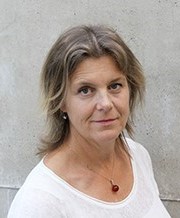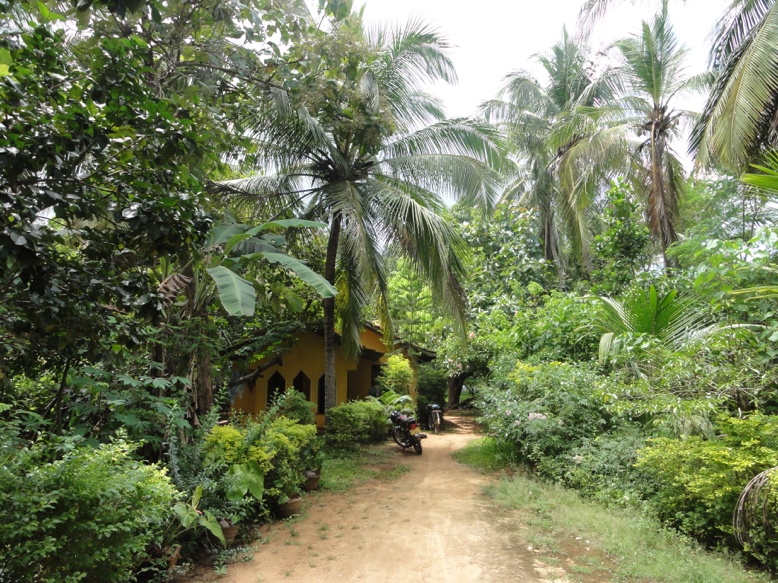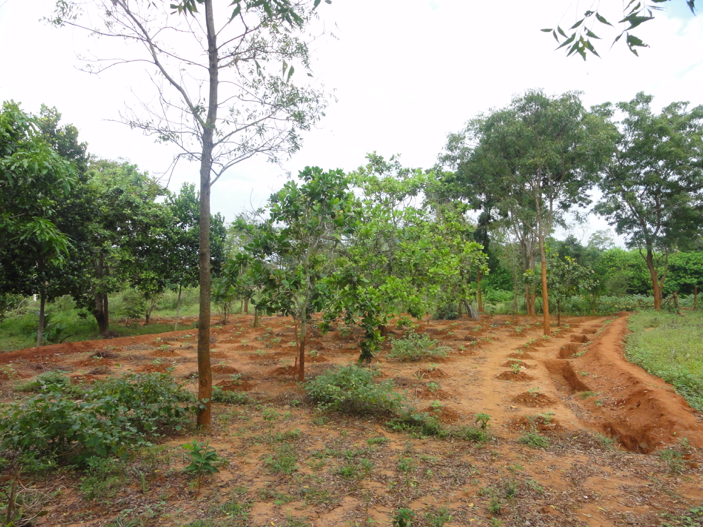Contact

Madelene Ostwald, Assoc. Prof.
Challenge leader of Challenge 2
Department of Thematic Studies/Environmental Change
Linköping University
Telephone: +46 708-51 93 11
E-mail: madelene.ostwald@liu.se

Eskil Mattson, PhD at the Centre for Environment and Sustainability (joint centre by Chalmers University of Technology and University of Gothenburg) – travelled to central Sri Lanka in April. He is part of theme 2 in AgriFoSe2030; Multifunctional landscapes for increased food security and went travelling to Sri Lanka to see how people and institutions are working with home gardens and food security.
After his arrival back home in Sweden AgriFoSe2030 took the opportunity to ask him a few questions about his trip.
Q: Tell us briefly who you are? What is your background? What are your research areas?
EM: My name is Eskil Mattsson and I work as a researcher at the Centre for Environment and Sustainability, University of Gothenburg. I have a PhD in Physical Geography and my research focuses on multifunctional land use systems in relation to climate policies, food security and ecosystem services. Currently I’m working in the theme on multifunctional landscapes and food security in the AgriFoSe2030 programme.
EM: During my visit I have met several researchers, practitioners and decision makers and learned about current Government initiatives that promote food security and nutrition through multifunctional land use systems, primarily homegardens, and how researchers and decision-makers collaborate on these issues. I also visited Dr. S.P Nissanka, who is the Sri Lankan partner in the theme to discuss relevant literature for the systematic review we are conducting aimed at understanding the role of multifunctional landscapes in providing food security.

A multistory "Kandyan" homegarden from central Sri Lanka.
EM: I think the programme is important for many reasons. For example, producing enough nutritious food that everyone can access, and doing so sustainably along with severe challenges such as water scarcity and climate change requires multidisciplinary, science-based approaches – something that the programme highlights through the diversity of themes and different researcher competencies. Also, the translation of research knowledge to the most affected and to those who are crafting polices for the most affected is key. In this process I think the AgriFoSe2030 programme can play an important role by translating science through various exchange activities and courses with relevant stakeholders, women and youth in low-income countries.

Dry-zone homegarden with combinations of trees and cash crops (in this picture mostly chili).
EM: I’m really passionate about the agroforestry systems called tropical homegardens. I visited several of these gardens during my recent trip to Sri Lanka. In some parts of the country, especially in the wetter central parts, homegardens almost resemble natural forests in composition. Homegardens are prime examples of multifunctional landscapes providing food security, nutrition and many other social, environmental and economic benefits for local populations. Scientific evidence on this important land use system is however limited and much of the research on home gardens to date has been done by single- discipline specialists. For a richer and more complete picture, we need broader, multi-disciplinary perspectives.

A farmer showing one of his Nutmeg trees in his homegarden. Nutmeg is an evergreen tree, which grows in the up-country in Sri Lanka and has a high market value.

Challenge leader of Challenge 2
Department of Thematic Studies/Environmental Change
Linköping University
Telephone: +46 708-51 93 11
E-mail: madelene.ostwald@liu.se